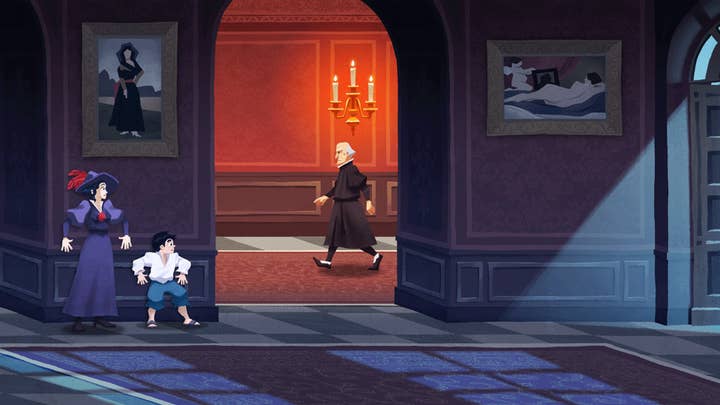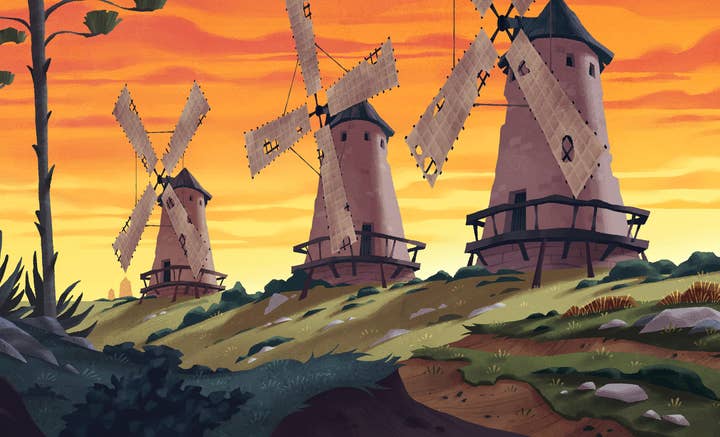Capturing the Spanish Golden Age in Puerto Viejo
"One could say I wrote fan-fiction with characters from the Spanish Golden Age,” says Bocata Games' Sara Calzada
Don Quixote de la Mancha, Miguel de Cervantes' tale of a nobleman who becomes so engulfed in chivalric romances that he decides to become a knight-errant, is widely considered to be the "first European modern novel." Published in two parts, first 1605 and then 1615, the mighty tome is a satire of orthodoxy and nationalism. In later years, it also influenced famous books such as The Three Musketeers, Adventures of Huckleberry Finn, and Cyrano de Bergerac.
Although a seminal work of its era, its influence on popular culture has understandably waned over the centuries. But its role as one of the most important pieces of literature produced during the period is undeniable, paving the way for a new breed of literature during the Spanish Golden Age which left behind the increasingly dated chivalric and pastoral works.
Casual adventure game Puerto Viejo, from London-based developer Bocata Games, aims to use the medium of games to reignite an interest in the Spanish Golden Age of literature among modern audiences.
"We researched baroque art, watched movies based in Spain back then, and we learned how the cities used to look like"
"As a kid, I was fascinated by my grandma's book collection. One of these books was a beautiful edition, heavy as a brick: Don Quixote," says Sara Calzada, director of Bocata Games. "When I was considering original ideas for a new game, this book came to mind. I thought it would be great fun to bring to life some of my favourite characters from all these books I read when I was younger."
The game's protagonist Miguel is inspired by Lázaro from the 1554 book El Lazarillo de Tormes, which was published anonymously because of its opposition to religious authority. Other characters such as Lope are inspired by playwright Lope de Vega.
"What I love the most about these books is that they are full of action, drama, and its characters are often passionate and witty," Calzada adds. "Most of them are survivors at heart. They are going through hardships, but there's always an element of comedy in their misadventures."
The works of these prominent authors and playwrights are not only vast in scope, but also incredibly numerous in some cases. Lope de Vega, for example, was one of the most prolific authors in the history of literature.

"I would find it extremely challenging to adapt all these books into a casual indie game, so I instead created a new story with my favourite characters that is light-hearted, comedic, and easy to digest," says Calzada. "One could say I wrote fan-fiction with characters from the Spanish Golden Age.
"In order to translate the vibe of that era through the visuals, we researched baroque art, watched movies based in Spain back then, and we learned how the cities used to look like. Puerto Viejo has been an interesting journey for us, and an excuse to study more in detail the subject in order to bring in a degree of authenticity."
Literature from the Spanish Golden Age commonly explored themes of anticlericalism, and in part gained popularity through anti-orthodox satirical elements. Challenging preconceptions of the era, Calzada was reluctant to include such aspects in the game.
"I felt it would be nearly impossible for me to condense these complex, multi-layered novels in less than an hour of gameplay," she says. "I also want to cater to a wide audience, and I think it might be hard for the youngest players to understand themes like anticlericalism when they have little knowledge on what was the context in Spain back then.
"This is a game for all audiences, and I have avoided the use of violence and other adult themes. Puerto Viejo's world is definitely inspired by Spanish novels, but it is not an accurate depiction of any of them."

Instead, Bocata Games opted to lean into more accessible themes, with the aim of capturing the "vibe mostly through visuals," setting the story in "very traditional locations," and creating characters who would fit right into books of the era.
"The story in Puerto Viejo describes an optimistic kid that shows courage and proactiveness in the face of adversity," says Calzada. "He demonstrates willingness and trust towards the other characters. Miguel has a very positive attitude. I have imagined a new story and tried to give it a wholesome vibe overall, avoiding violence and overly complicated situations."
With this approach, Calzada hopes to ignite interest in the literature which inspired Puerto Viejo, rather than recreating or reinterpreting the challenging themes.
"When I started working on Puerto Viejo, I practiced pitching it with my friends. After I said it's based on Spanish literature, one of them answered: 'Oh, so it's a didactic game then.' I realised how some players might not feel excited -- at all -- about being taught in their spare time.
"I don't think Puerto Viejo falls into the educational category at all... It won't teach you about literature or history, but by exposing the players to the topic, some will find it engaging and they might go to Wikipedia, watch a movie, or even get a book about the subject. For me, curiosity is a fundamental ingredient of education -- or the ideal starting point.
"As both a developer and a player, I'm very interested in those kinds of games -- the ones that inspire people to learn. I think that the Assassin's creed series is a great tool to raise an interest in history, that 80 Days might improve your geography knowledge, and that Guitar hero might spark an interest in music. Games can be such an inspiring tool."

